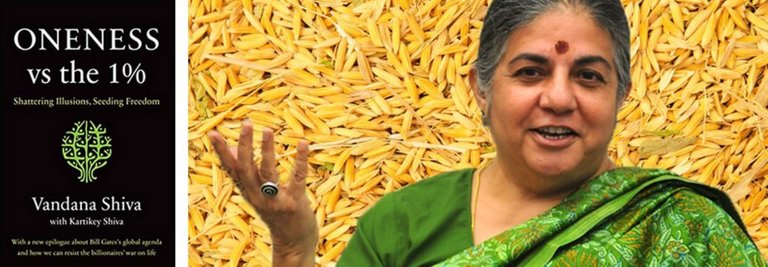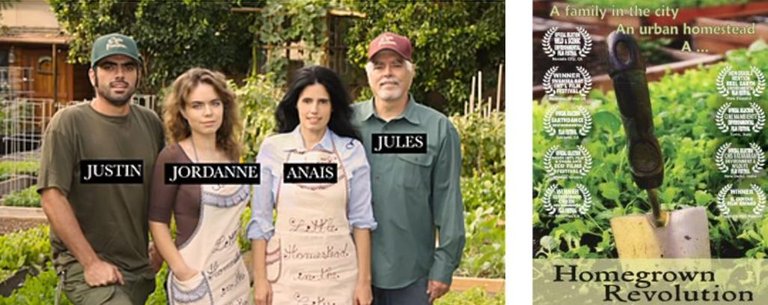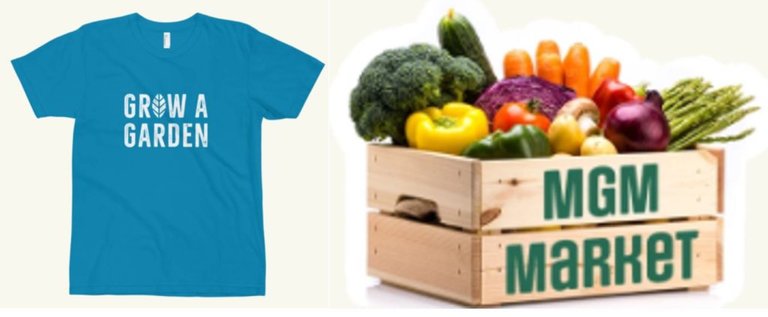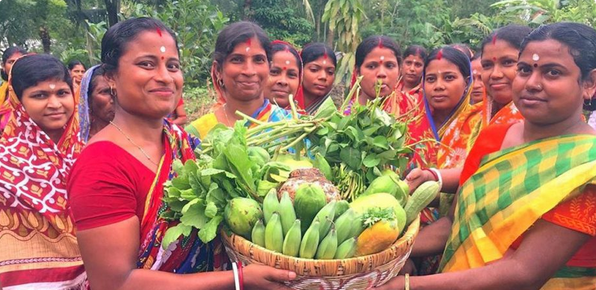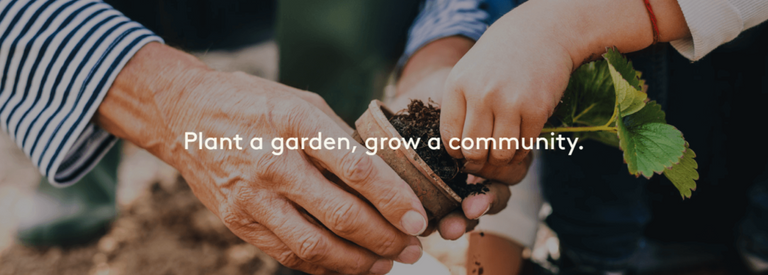By Neenah Payne
Most people recognize now that America and the rest of the world are in deep trouble -- in terms of our economy, health, politics, the environment, endless wars, etc. Is there a vision anywhere on the planet that can unite the world in envisioning and creating a better future for humanity now?
When I was in college, I knew something major was left out of the history I was taught. However, it was only when I joined the protest against the Columbus Quincentennial in 1992 and met Native Americans that I figured out what was missing -- the other side of the story! The 500 Native Nations are like Big Pink Elephants that America does its best to ignore although many of our cities, states, and rivers carry Native Americans names.
People fled Europe for America, in part, to escape political, religious, and economy tyranny. They learned freedom here. Thomas Jefferson and Benjamin Franklin studied with the Haudenosaunee (Six Nations Iroquois) whose system of government inspired our own and the United Nations. Cornell University held a conference in 1987 on the link between the Iroquois Confederacy and the U.S. Constitution. The next year, the U.S. Congress passed a resolution recognizing the influence of the Iroquois League on the formation of the U.S. Constitution and the Bill of Rights.
When the European colonists first came to America, they were known by their country of origin -- Dutch, British, French, Spanish, etc. However, when the US Founding Fathers declared independence from Britain in 1776, they adopted the name “American” which until then referred only to the original inhabitants of this hemisphere -- to “Indians”. So, in effect, we all became Indians!
Indian Givers: How Native Americans Transformed the World by Jack Weatherford shows that many of our foods and medicines are gifts of Native America. Amazon says:
“After 500 years, the world's huge debt to the wisdom of the Indians of the Americas has finally been explored in all its vivid drama by anthropologist Jack Weatherford. He traces the crucial contributions made by the Indians to our federal system of government, our democratic institutions, modern medicine, agriculture, architecture, and ecology, and in this astonishing, ground-breaking book takes a giant step toward recovering a true American history.”
Dr. Vandana Shiva: Oneness Vs The 1%
However, in spite of all I learned from lectures by the legendary Haudenosaunee professors like Chief Oren Lyons, I could not see how the wisdom of Native American cultures could be “translated” to help rescue America and the world. When Chief Lyons reported to the United Nations the findings of the Global Forum of Spiritual and Parliamentary Leaders on Human Survival in 2010, he summarized their conclusions with four words: “Values Change For Survival”. However, that directive did not spell out which values to change or how.
Westerners are flocking to the Amazon to drink ayahuasca with shamans now to find their way back to our shamanic roots from which Christianity severed the West. However, while those experiences often provide deep personal insight, they also don’t provide a clear guide on how to rescue the West from its increasingly destructive path economically, politically, or environmentally.
Fortunately, Dr. Vandana Shiva has articulated a very clear alternative vision and comprehensive guide in her 2020 book Oneness vs. the 1%: Shattering Illusions, Seeding Freedom. It explains how the West can get back on track now just by a change of worldview.
FREE PDF: 10 Best Books To Survive Food Shortages & Famines
In the interview We Can Do This Podcast: Healing Through Gardening with Dr. Vandana Shiva, Dr. Shiva says we are witnessing the collapse of the unsustainable Western paradigm now. She quotes Thomas Kuhn as saying, “Changes of paradigms never happen because you convince holders of old paradigms to give them up. Paradigms never get given up. They just become irrelevant”. She explains that we don’t have to try to change anyone else or the system. We just need to change ourselves. Dr. Shiva explains that the dying Western paradigm is becoming more tyrannical now in an attempt to maintain control as it is losing power.
When most people think of power, they think in terms of military might or economic domination. However, as the legendary British author David Icke explains, the real power is the narrative that controls people’s minds (and thus a civilization). People often don't realize that entire civilizations are built on Foundational Stories. The story of the West for several hundred years has been "Greed is good" as Gordon Gecko (played by Michael Douglas) told us in the 2010 film Wall Street: Money Never Sleeps. That philosophy is based on the insatiable demand for "more" which is celebrated each year by the Forbes List of Billionaires, but is unsustainable on a finite planet.
We Change Ourselves To Change The World
Are Victory Gardens Returning Now? features several people and families who have adopted Mahatma Gandhi’s motto “Be the change you want to see in the world”.
The article links to the fascinating interview above with Dr. Vandana Shiva and Rishi Kumar, an urban farmer in Los Angeles. After Rishi studied at Dr. Shiva's Navdanya Farm in India for seven months, he quit his computer engineering job. He and his mother Manju converted their suburban tract home in Diamond Bar, California in 2009 into The Growing Home -- shown in the film Urban Fruit.
The Growing Home began as a home garden with the idea that the way to change the world is to start in your own life. Rishi and Manju first created a small garden for vegetables, fruits, and herbs. In 2011, The Growing Home opened as an educational demonstration site. The Growing Home, on 5,000 sq. ft. of arable land, produces 1,500 lbs. of food a year. It is the largest permaculturally-designed suburban farm, with 50 exotic fruit trees, ponds, wetlands, chickens, rabbits, and beehives.
With a CSA, the Kumars now feed 15 families. They created The Growing Club whose YouTube Channel has over 70 videos and has inspired a host of like-minded projects. The Growing Club now plans to provide organic produce for health food stores across the nation.
The article also links to the video interview Lynette Zang: Why You Must Get Out of the System; The Fed's Master Plan seen below. Zang explains that the US financial system collapsed in 2008 and has been on life support since then. Zang lists her top eight priorities for a reasonable standard of living as shelter, food, water, energy, security, barterability (silver), wealth preservation (gold), and community.
Zang stresses that it is important to learn to garden now! In 2010, she sold her condo and moved to a home in central Phoenix. Although she had never been a gardener, she l converted her half-acre property into a food-producing urban farm where she raises chickens, ducks, quail, tilapia, and fresh-water shrimp! Zang has a wide variety of vegetables in her Food Forest including peaches, plums, almonds, and walnuts. She stresses the importance of community. Zang donates food to a nearby school for homeless kids and set up a program so the kids are now growing their own food.
Urban Homestead: Path To Freedom
The article also features the remarkable Dervaes family that has worked since the mid-1980s to transform their ordinary city lot in Pasadena, California, into a thriving organic garden that supplies them and their “citified” backyard farm animals with food year round. The Dervaes transformed their home in the midst of densely urban downtown Pasadena into an urban homestead where they harvest three tons of organic food annually from their 1/10 acre garden while incorporating back-to-basics practices, solar energy, and biodiesel.
These modern-day homesteading pioneers also run a successful business selling fresh produce to local restaurants and the community. Not only are they successful at growing their own food, but have also grown a community. Through their website, homestead events, and countless skill share workshops, they are inspiring folks to take matters into their own hands and to be the change they wish to see.
The Homegrown Revolution film was a collaborative family project by Jules, Anais, Justin, and Jordanne with each member taking part in the filming, editing, and structure of the film. The original version of Homegrown Revolution film was made in three days for a lecture Jules Dervaes gave at the University of California Los Angeles in October 2007 on Slow Food. It received a wildly enthusiastic response from the students, attracted an avid following on YouTube, and got the attention of several local and worldwide film festivals. Since their first press article in 2002, the Urban Homestead project has been featured on thousands of blogs, dozens of TV appearances (Sundance, CBS News, ABC Nightline, Oprah and many more) and hundreds of articles in LA Times, NY Times, Times of India, Germany Faz – to name a few.
Jules Dervaes, who founded The Urban Homestead with his three kids, said, “In our society, growing food yourself has become the most radical of acts. It is truly the only effective protest, one that can and will overturn the corporate powers that be. By the process of directly working in harmony with nature, we do the one thing most essential to change the world -- we change ourselves!”
In Power of One -- Anais Dervaes, Anais says 70 families subscribe to their Community Service Agriculture (CSA) program in which they partner with two other farms. The Dervaes give workshops to adults and kids, teach at schools, and give tours of the garden. Anais points out that there’s a growing trend now as more people are gardening to grow their own food. She recommends that people start small by just growing an herb or two. Anais points out “Small steps have big impact”.
The Million Gardens Movement
EARNING $2K in ONE WEEK Growing Veggies on his FRONT YARD! shows that Jim Kovaleski’s garden is on a half-acre in the front yards of his and his mother’s homes In Florida. His CSA Buyers Club is full now with 50 people. Kovaleski points out how hard it is to get seeds now. He says that the fact that he makes $2,000 a week from his garden is an indication that other people can help feed their communities by growing gardens on small plots. Kovaleski also gardens half the year at his home in Maine.
Growing Return To The Garden of Eden shows that Frank Giustra of Modern Farmer and Kimbal Musk of Big Green created The Million Gardens Movement, a charitable project dedicated to mobilizing a million people to grow their own food. Whether it’s in a community garden, or in a window box, it’s small collective acts that sow the biggest seeds of change. When you donate $20, the Million Gardens Movement provides two families with a beginner-friendly garden kit. The site points out that 9.3 million Americans started gardening in 2020.
Buy a “Grow A Garden” T-Shirt to help support The Million Gardens Movement and to spark an urban gardens revolution in your neighborhood! The T-shirts come in navy, red, royal blue, forest green, fuchsia, and teal.
Urban Gardens: The Greatest Revolution
Wikipedia says:
“Vandana Shiva is an Indian scholar, environmental activist, food sovereignty advocate, Eco-feminist and anti-globalization author. Based in Delhi, Shiva has written more than 20 books. She is often referred as "Gandhi of grain" for her activism associated with anti-GMO movement.
Shiva is one of the leaders and board members of the International Forum on Globalization (with Jerry Mander, Ralph Nader, and Jeremy Rifkin), and a figure of the anti-globalization movement. She has argued in favor of many traditional practices….
In 1982, she founded the Research Foundation for Science, Technology and Ecology. This led to the creation of Navdanya in 1991, a national movement to protect the diversity and integrity of living resources, especially native seed, the promotion of organic farming and fair trade. Navdanya, which translates to "Nine Seeds" or "New Gift", is an initiative of the RFSTE to educate farmers of the benefits of maintaining diverse and individualized crops rather than accepting offers from monoculture food producers. The initiative established over 40 seed banks across India to provide regional opportunity for diverse agriculture.”
“Shiva and her team at the Research Foundation for Science, Technology and Ecology challenged the biopiracy of neem, basmati and wheat….Her first book, Staying Alive (1988), helped change perceptions of third world women. In 1990, she wrote a report for the FAO on Women and Agriculture titled "Most Farmers in India are Women". She founded the gender unit at the International Centre for Mountain Development (ICIMOD) in Kathmandu and was a founding board member of the Women's Environment & Development Organization (WEDO).”
She aligns the destruction of natural biodiversity with the dismantling of traditional communities—those who 'understand the language of nature’. David Wright wrote in a review of the book that to Shiva, "the Village becomes a symbol, almost a metaphor for 'the local' in all nations"….Shiva has also served as an advisor to governments in India and abroad as well as non-governmental organizations. She is a councilor of the World Future Council.”
Universal Declaration of The Rights of Mother Earth
The World Economic Forum has proposed The Great Reset as the “new normal” in which by 2030, we will all be happy owning NOTHING and will rent everything. So, the 1% will own everything -- an unsustainable and undemocratic plan. Gates’ Plan To Control World's Seeds, Agriculture, Food shows that the West is on the wrong path. Our survival now depends on returning to a more holistic vision in greater harmony with the Earth.
In Making Peace with the Earth and Ending Our Separation from It — Vandana Shiva, Dr. Shiva recounts the introduction of the Universal Declaration of the Rights of Mother Earth introduced Evo Morales, former president of Bolivia and the hemisphere’s first Native American president. The Declaration was introduced at the World People’s Conference on Climate Change and the Rights of Mother Earth in Bolivia in 2010 with more than 35,000 people from over 100 countries. It has been presented to the UN General Assembly and over 800,000 people have signed for the UN to adopt the declaration. See the video and sign the petition. Ecuador included Rights of Nature in its constitution in 2008.
THE SAMI PARLIAMENT ENDORSES THE UNIVERSAL DECLARATION OF THE RIGHTS OF MOTHER EARTH. Victor Hugo: "There is nothing so powerful as an idea whose time has come."
Plant A Garden: Grow A Community
Dr. Shiva says “Urban Gardens are the greatest revolution!” She urges everyone to save seeds because seeds may become difficult to get -- especially heirloom seeds which, unlike hybrid seeds, grow again.
See Dr. Shiva on my Urban Gardens Revolution site. Even people who have no land can grow sprouts and/or use an AeroGarden.
Plant a Seed - Miss Jamie Music Video
Neenah Payne writes for Activist Post and Natural Blaze
